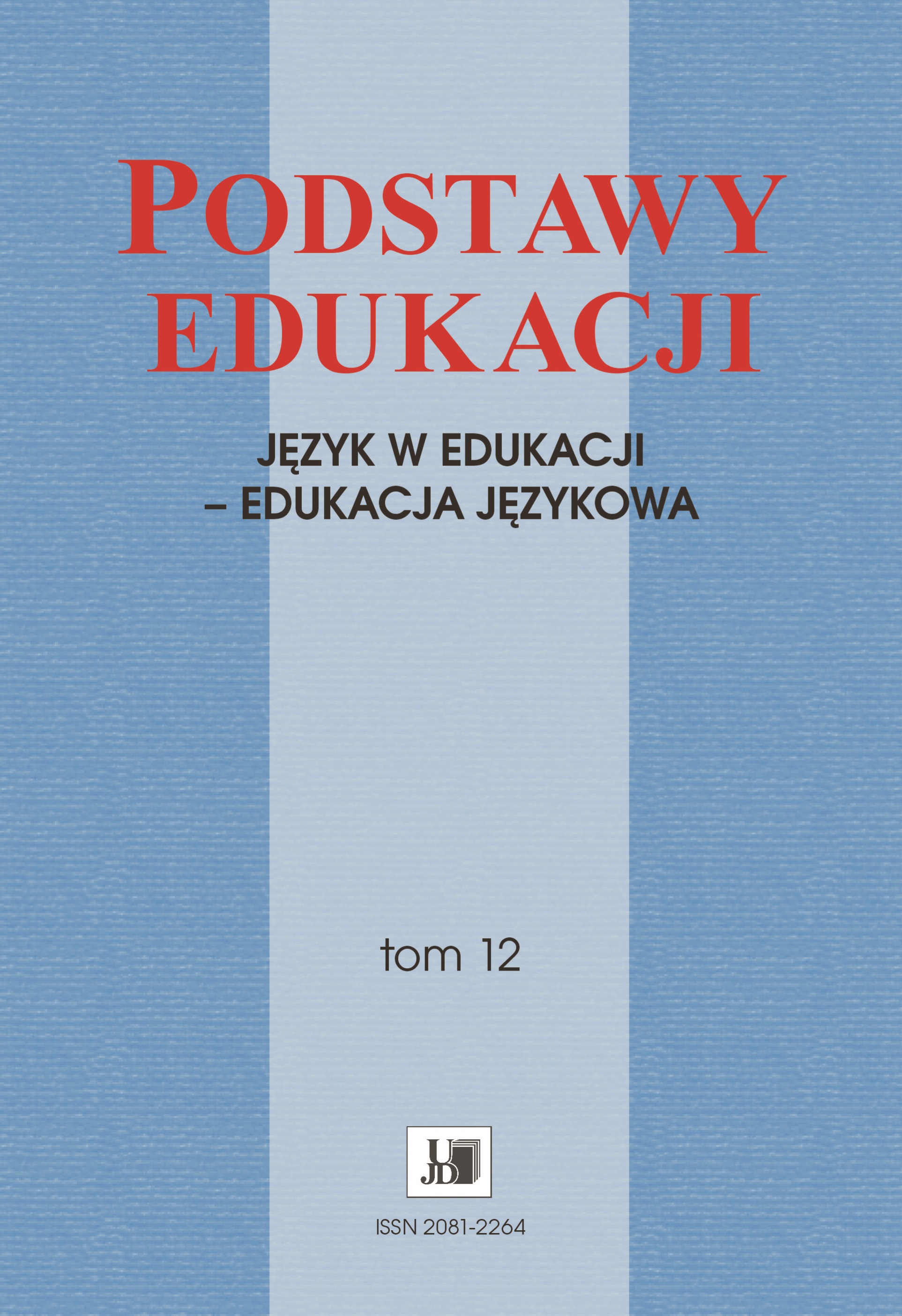Abstrakt
Szkic jest próbą przywołania sylwetki Sebastiana Petrycego z Pilzna, polskiego renesansowego lekarza, filozofa, arystotelika, poety i przede wszystkim twórcy autonomicznej koncepcji pedagogiczno-filozoficznej, w kontekście analizy tekstów źródłowych, w których autor podejmuje zagadnienia związane z wychowaniem i edukacją kobiet. Rozstrzygnięcia pedagogiczne Petrycego zawarte w Przydatkach do pism Arystotelesa dotyczące kształcenia umysłowego, moralnego i fizycznego kobiet w sposób zdecydowany należy uznać za bezpośrednią kontynuację poglądów w tej kwestii Arystotelesa i Konrada z Byczyny. Wybitny przedstawiciel polskiego renesansu powinien był, jak się wydaje, znać, chociażby pobieżnie, fragmenty tekstów Kwintyliana, św. Hieronima czy Erazma z Rotterdamu poświęcone wychowaniu kobiet. Nigdzie jednak, w żadnym fragmencie Przydatków, nie można wskazać choćby cienia inspiracji Petrycego „Kształceniem mówcy”, „Listem do Lety” czy „Rozmową opata z Magdalą”. W recepcji antycznej myśli o wychowaniu kobiet w koncepcji pedagogicznej Sebastiana Petrycego z Pilzna nie znalazł również swojego miejsca Platon. To Arystoteles, także w warstwie języka, wytycza kształt i jakość świata kobiet, przedstawiony przez renesansowego autora pierwszej koncepcji pedagogiczno-filozoficznej stworzonej dla polskiego odbiorcy.
Bibliografia
Balbus, S. (1993). Między stylami. Kraków: Wydawnictwo Universitas.
Hezjod (1999). Prace i dni. W: Hezjod, Narodziny bogów (Theogonia). Prace i dni. Tarcza (tłum. J. Łanowski). Warszawa: Wyd. Prószyński i S-ka.
Komeński, J.A. (1956). Wielka dydaktyka (tłum. K. Remerowa). Wrocław: Zakład Narodowy im. Ossolińskich.
Kot, S. (1929). Źródła do historji wychowania. T. 1. Kraków: Państwowe Wydawnictwo Naukowe.
Leniek, J. (1907). Poglądy pedagogiczne Sebastyana Petrycego. Lwów: Nakładem Autora z I. Związkowej Drukarni.
Michalkiewicz-Gorol, A. (2012). Poeta zapomniany. Konteksty Kultury, 8, 5–14.
Modrzewski, A.F. (1953). O poprawie Rzeczypospolitej. W: Dzieła wszystkie. T. 1 (tłum. E. Jędykiewicz). Wstęp Ł. Kurdybacha. Red. i komentarze S. Bodniak. Warszawa: Państwowy Instytut Wydawniczy.
Petrycy, S. (1609). Horatius Flaccus w trudach więzienia moskiewskiego na utulenie żalów w Lyrickich pieśniach zawarty. Kraków: Wyd. J. Łoś.
Petrycy, S. (1618). Ekonomiki Arystotelesowej, to jest rządu domowego z dokładem księgi dwoje. Kraków: W drukarni Macieja Jędrzejowczyka roku pańskiego 1618. In folio str. 135. Nlb. 8.
Petrycy, S. (1956). Pisma wybrane. T. 2. Oprac. W. Wąsik. Wstęp K. Grzybowski, Warszawa: PWN.
Wąsik, W. (1912). Literatura polskich przekładów Arystotelesa jako przyczynek do historii folozofji w Polsce. Przegląd Filozoficzny, 15 (3), 320–339.
Wąsik, W. (1968). System pedagogiczny Sebastiana Petrycego z Pilzna. Warszawa: Akademia Teologii Katolickiej.
Winniczuk, L. (1973). Kobiety antycznego świata (tłum. S. Srebrny). Warszawa: PWN.
Vives, J.L. (1968). O wychowaniu niewiasty chrześcijanki (s. 271–299). W: O podawaniu umiejętności (tłum., wstęp i przyp. A. Kempfi. Wrocław: Wydawnictwo Polskiej Akademii Nauk.
OŚWIADCZENIE AUTORA:
Mam świadomość, że czasopismo jest wydawane na licencji Creative Commons - Uznanie autorstwa (https://creativecommons.org/licenses/by/4.0/legalcode).
Przesyłając artykuł wyrażam zgodę na jego udostępnienie na tej licencji.
